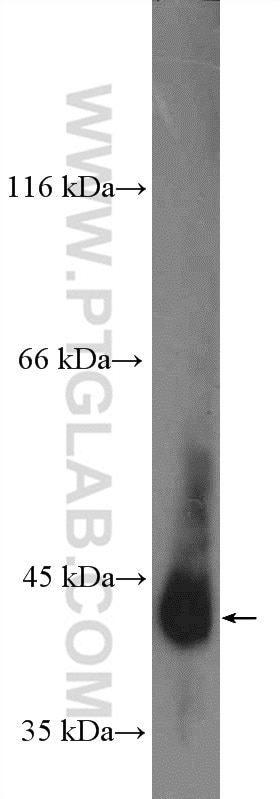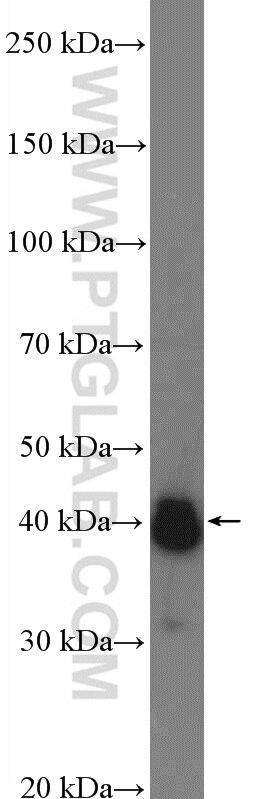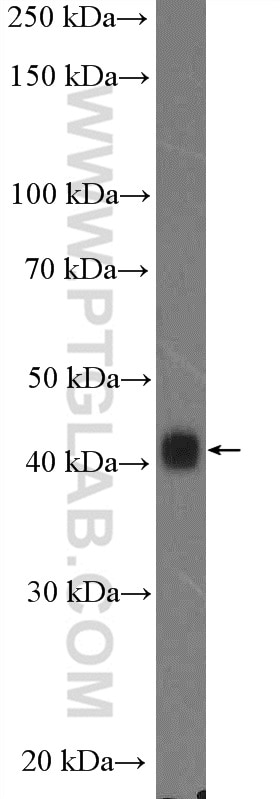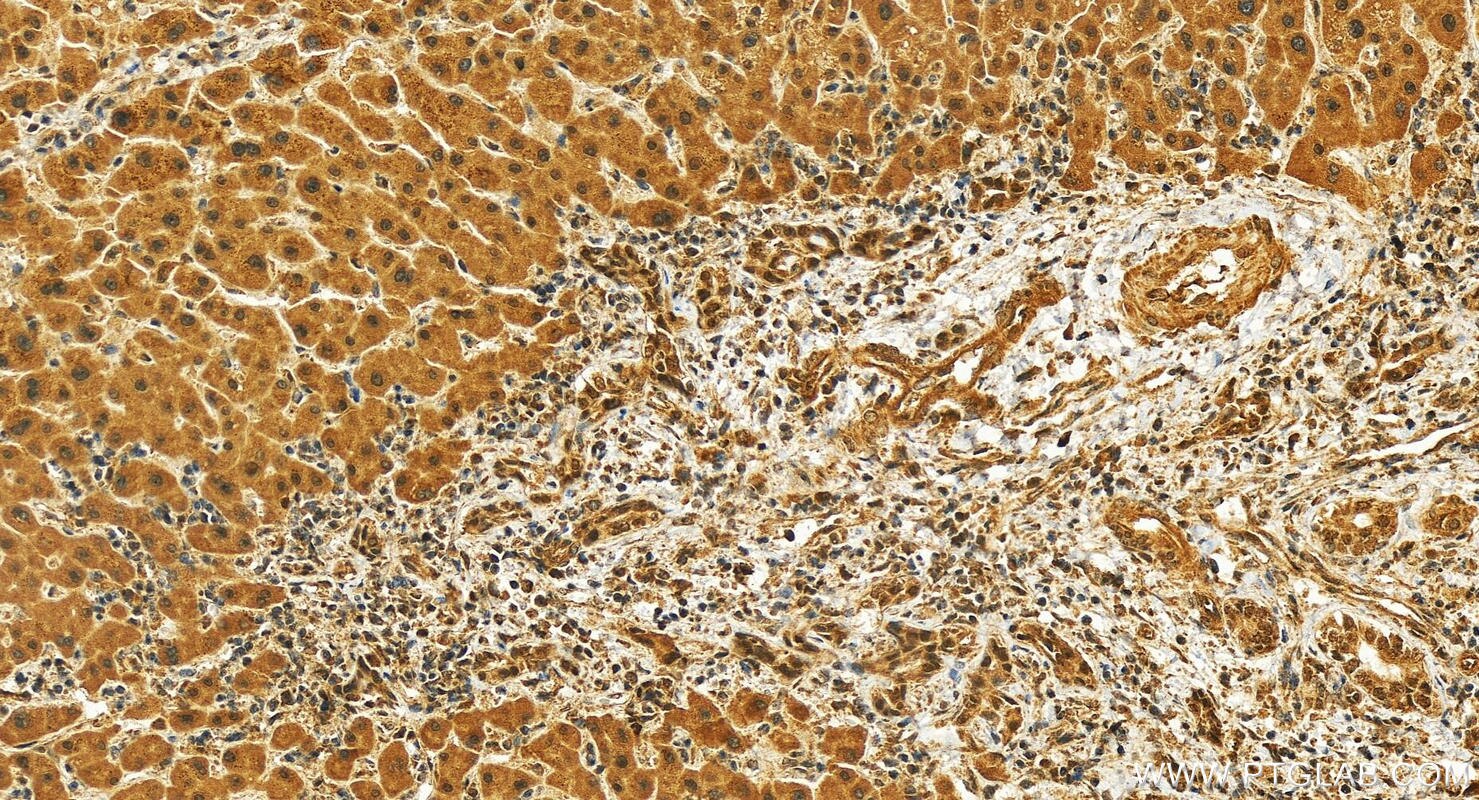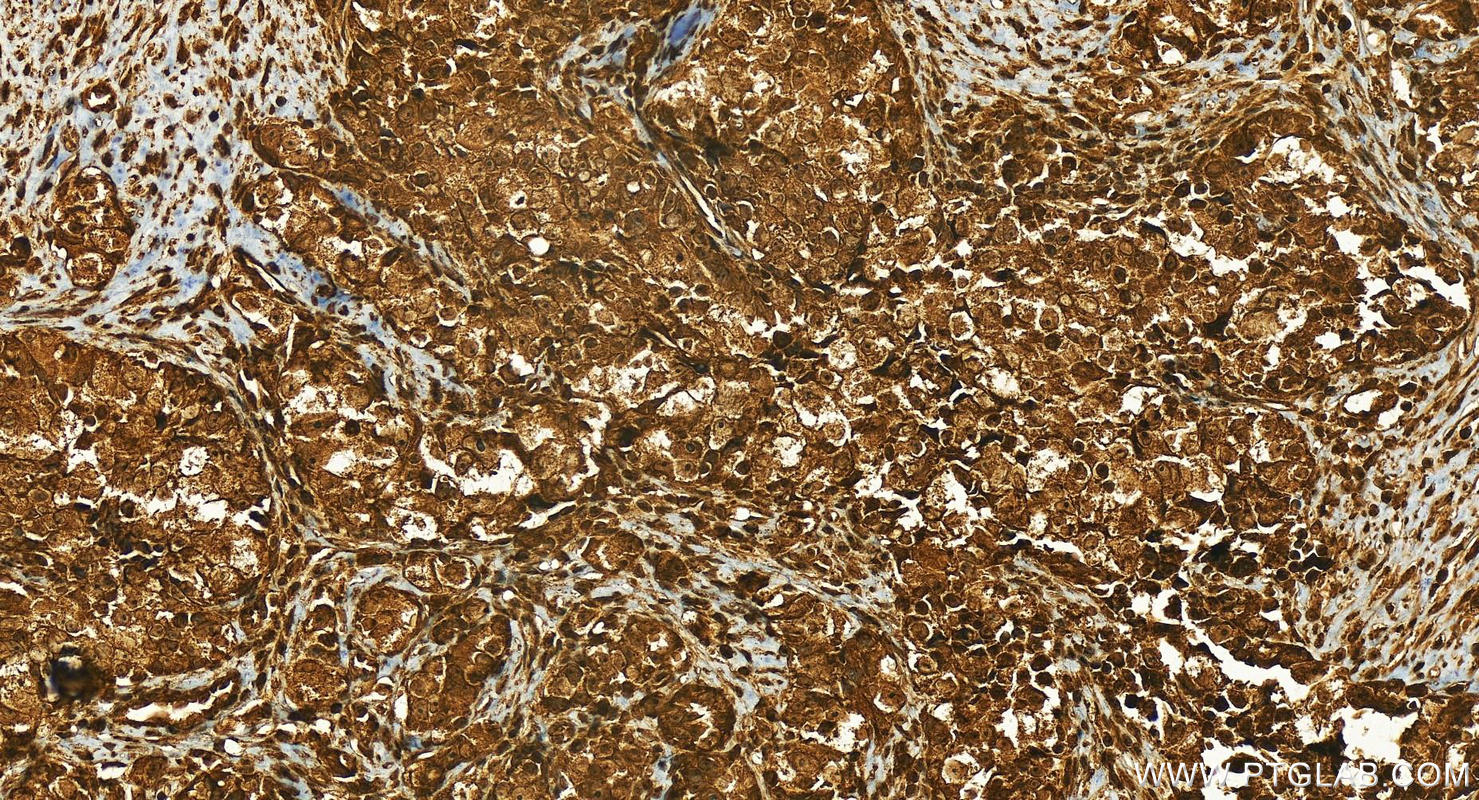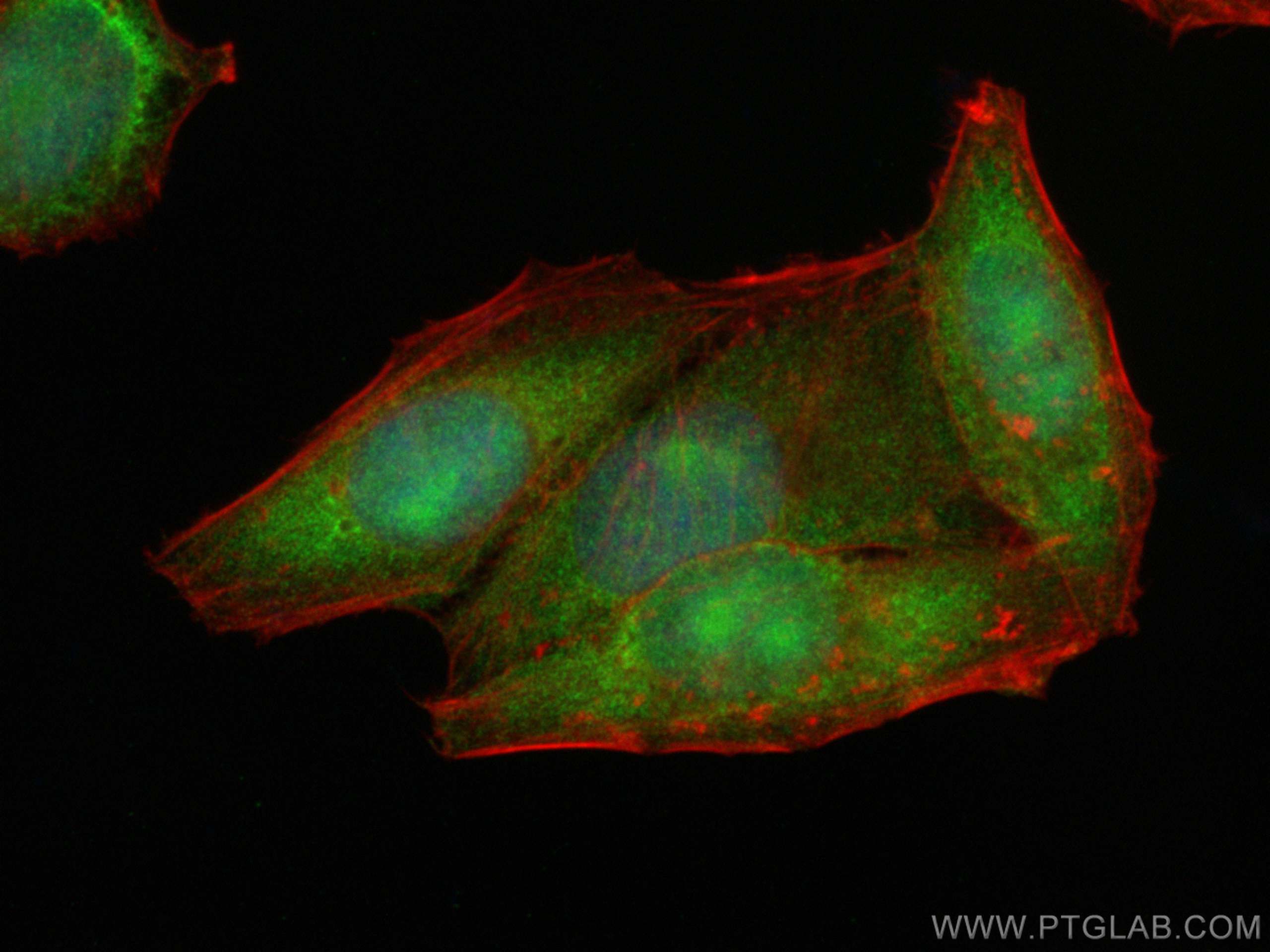Tested Applications
| Positive WB detected in | HEK-293T cells, HepG2 cells |
| Positive IHC detected in | human intrahepatic cholangiocarcinoma tissue, human ovary cancer tissue Note: suggested antigen retrieval with TE buffer pH 9.0; (*) Alternatively, antigen retrieval may be performed with citrate buffer pH 6.0 |
| Positive IF/ICC detected in | HepG2 cells |
Recommended dilution
| Application | Dilution |
|---|---|
| Western Blot (WB) | WB : 1:500-1:2000 |
| Immunohistochemistry (IHC) | IHC : 1:50-1:500 |
| Immunofluorescence (IF)/ICC | IF/ICC : 1:50-1:500 |
| It is recommended that this reagent should be titrated in each testing system to obtain optimal results. | |
| Sample-dependent, Check data in validation data gallery. | |
Product Information
26747-1-AP targets APTX in WB, IHC, IF/ICC, ELISA applications and shows reactivity with human samples.
| Tested Reactivity | human |
| Cited Reactivity | human |
| Host / Isotype | Rabbit / IgG |
| Class | Polyclonal |
| Type | Antibody |
| Immunogen |
CatNo: Ag24945 Product name: Recombinant human APTX protein Source: e coli.-derived, PGEX-4T Tag: GST Domain: 1-164 aa of BC104881 Sequence: MMRVCWLVRQDSRHQRIRLPHLEAVVIGRGPETKITDKKCSRQQVQLKAECNKGYVKVKQVGVNPTSIDSVVIGKDQEVKLQPGQVLHMVNELYPYIVEFEEEAKNPGLETHRKRKRSGNSDSIERDAAQEAEAGTGLEPGSNSGQCSVPLKKGKDAPIKKESL Predict reactive species |
| Full Name | aprataxin |
| Calculated Molecular Weight | 342 aa, 39 kDa |
| Observed Molecular Weight | 39 kDa |
| GenBank Accession Number | BC104881 |
| Gene Symbol | APTX |
| Gene ID (NCBI) | 54840 |
| RRID | AB_2880620 |
| Conjugate | Unconjugated |
| Form | Liquid |
| Purification Method | Antigen affinity purification |
| UNIPROT ID | Q7Z2E3 |
| Storage Buffer | PBS with 0.02% sodium azide and 50% glycerol, pH 7.3. |
| Storage Conditions | Store at -20°C. Stable for one year after shipment. Aliquoting is unnecessary for -20oC storage. 20ul sizes contain 0.1% BSA. |
Background Information
APTX, also named as Aprataxin, is a nuclear protein, present in both the nucleoplasm and the nucleolus, which is a member of the histidine triad (HIT) superfamily. APTX is involved in DNA single-strand break repair, mediating protein-protein interactions with molecules responding to DNA damage. APTX contains three conserved domains: an N-terminal forkhead-associated (FHA) domain which mediates protein-protein interactions, a HIT domain that is similar to Hint, and a C-terminal zinc finger domain. Loss of function mutations in APTX, the gene encoding for Aprataxin, destabilize the Aprataxin protein and result in a rare neurological disorder known as ataxia-oculomotor apraxia, characterized by abnormal movements of the head and eyes.
Protocols
| Product Specific Protocols | |
|---|---|
| IF protocol for APTX antibody 26747-1-AP | Download protocol |
| IHC protocol for APTX antibody 26747-1-AP | Download protocol |
| WB protocol for APTX antibody 26747-1-AP | Download protocol |
| Standard Protocols | |
|---|---|
| Click here to view our Standard Protocols |

